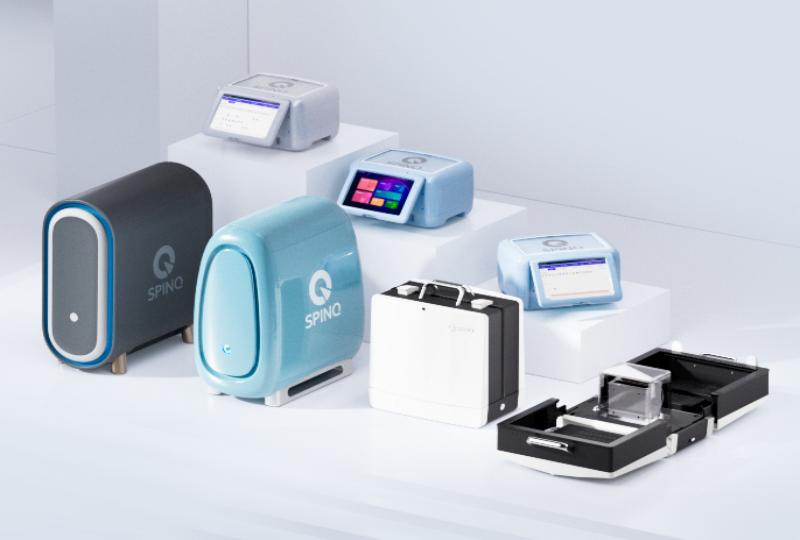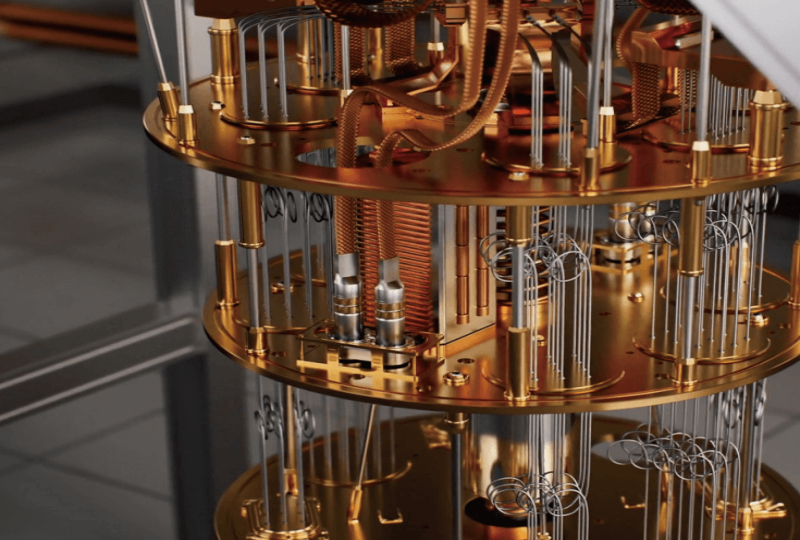How Does a Quantum Computer Work?
2025.07.24 · Blog How Does a Quantum Computer Work
Quantum computing might sound like something out of a science fiction movie, but it’s quickly becoming a reality—and it has the potential to change the way we solve complex problems. But how exactly does a quantum computer work, and why does it matter to you? In this blog post, we’ll break it down in simple terms, so you can understand how quantum computers operate and why they offer such unique advantages.
What Makes Quantum Computers Different from Classical Computers?

To understand how quantum computers work, it’s important to first grasp the difference between classical and quantum computers.
-
Classical computers (like the one you're using now) process information using bits. Each bit can be either a 0 or a 1. These bits are combined and manipulated to perform calculations, store data, and run programs.
-
Quantum computers, on the other hand, use qubits (quantum bits). Unlike classical bits, qubits can exist in multiple states at once thanks to the unique properties of quantum mechanics—namely superposition and entanglement. This gives quantum computers the ability to perform many calculations at the same time, opening up possibilities that classical systems can’t even approach.
The Core Concepts Behind Quantum Computing
Let’s break down the key quantum principles that make a quantum computer tick:
1. Superposition
In classical computing, a bit can either be in state 0 or state 1. But in quantum computing, a qubit can exist in multiple states simultaneously. This is called superposition.
Imagine flipping a coin. A classical computer would treat the coin as either heads or tails. But a quantum computer, in superposition, treats the coin as both heads and tails at the same time. This ability to hold multiple states simultaneously allows quantum computers to process a massive number of possibilities in parallel.
2. Entanglement
Another key concept is entanglement. When two qubits are entangled, the state of one qubit is directly linked to the state of another, no matter how far apart they are. This means that changing the state of one qubit will instantly affect the other, even if they're on opposite sides of the universe.
This connection allows quantum computers to perform highly complex calculations and synchronize multiple qubits, all working together on the same problem. It’s like having a team of workers who can communicate instantaneously, no matter the distance between them.
3. Quantum Interference
Quantum computers also take advantage of interference to amplify the probability of correct answers and cancel out incorrect ones. This helps ensure that when you get an answer, it’s the right one—or at least much closer to the right one compared to classical systems.
How Does a Quantum Computer Perform Calculations?

Here’s where things get interesting: once you understand superposition, entanglement, and interference, you can start to see how a quantum computer works its magic.
-
Initialization: First, qubits are initialized to a known state (like 0 or 1).
-
Superposition: The qubits are put into superposition, allowing them to explore multiple possibilities at once.
-
Entanglement: Qubits are then entangled, creating a network of qubits that are interdependent and can communicate with one another in real-time.
-
Manipulation: Quantum gates are applied to qubits. These gates control the qubits’ states and interactions, manipulating them in ways that create the necessary conditions to solve specific problems.
-
Measurement: Finally, the quantum computer measures the qubits' states. After the calculation is completed, the superposition collapses to a single result—essentially, the most likely answer to the problem at hand.
This ability to explore many possibilities at once and then collapse them into the correct solution is what gives quantum computers their unique power.
Real-World Applications of Quantum Computing
.png)
So, what does all of this mean for you? How can the quantum computer work for you and your business? Here are just a few real-world applications:
-
Optimization Problems
Whether you’re managing a logistics network, designing a financial portfolio, or optimizing energy grids, quantum computers can quickly analyze thousands (or even millions) of possible solutions to find the best one.
-
Cryptography
Quantum computing has the potential to revolutionize encryption and cybersecurity. Quantum key distribution (QKD) is one such technology that ensures unbreakable encryption, which could be vital for protecting sensitive data.
-
Drug Discovery and Materials Science
Quantum computers excel at simulating molecules and atoms, which is an incredibly difficult task for classical computers. This means that quantum computing could accelerate breakthroughs in drug discovery, material science, and chemistry by simulating complex molecular interactions more accurately than ever before.
-
Machine Learning
How Does SpinQ’s Quantum Technology Help?
At SpinQ, we’re working at the forefront of quantum computing, bringing the power of quantum hardware to your fingertips. SpinQ’s quantum computers utilize superconducting qubits that offer better coherence and more accurate computations. Whether you’re looking to leverage quantum computing for research, optimization, or simulations, our SpinQ QPU is designed to help you solve problems faster and more efficiently.
With SpinQ, you can unlock the true power of quantum computing and stay ahead in fields like finance, AI, healthcare, and material science.
Conclusion: The Future of Quantum Computing
As we move into the era of quantum computing, you’ll witness how quantum computers work to tackle some of the most challenging problems humanity faces. The advantage quantum computers offer—speed, efficiency, and computational power—is truly revolutionary, and the possibilities are endless.
At SpinQ, we’re committed to making quantum computing accessible and impactful for you. Whether you're a researcher, business leader, or enthusiast, now is the time to start exploring the potential of quantum computing. Ready to dive into the future of problem-solving? Let’s harness the power of quantum together!
Featured Content






